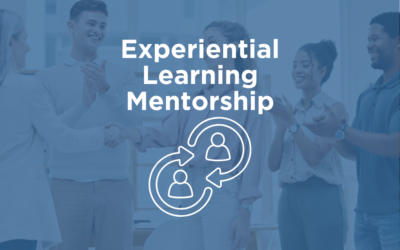“Your resume is impressive, but we’re really looking for a candidate that has worked in this specific industry before. Come back to us when you gain some more experience, and we can talk again”.
As a college Senior or a recent grad, these words might sound a little too familiar. The job market is increasingly competitive and employers seem to be getting more specialized each year with their roles and candidate searches. The old saying that “your major doesn’t really matter when you get into the real world” just doesn’t always ring true anymore when you consider what most US employers (from startup to Fortune 100) are looking for when recruiting recent grads. The reality is, the more specialized and skilled a student is coming out of their undergraduate or Masters program the more likely they are to stand out with recruiters and hiring managers.
Set your resume apart with work experience
An MBA with a strong academic record and a healthy understanding of the four P’s of marketing may still be very appealing to a consumer products company or a consulting group, but for the high growth tech company or a smaller brand, an undergraduate student with practical experience working with Google Adwords and Analytics, Facebook Ads, and link-based Content Marketing may actually bring more value to the company, for half the cost.
Likewise, an engineer who has used a specific statistical management software program before, or a financial analyst who has worked with a business unit to build a budget before, may see better job placement results than their collegiate counterparts who haven’t worked in that industry.
As the economy continues specializing and industry-specific experience becomes more important than ever, employers also demand the “soft skills” namely, communication skills. The growing list of demands need not discourage students from aiming for their dream job right out of a college. Students just need to explore the resources and differentiated programs available to them to gain experience while in school, many of which are actually free or even built into class work. There are many ways students can tailor their education and part-time work experiences to gain valuable experience to impress any recruiter or hiring manager someday, but these are some of our favorites.
Leverage your current part-time job or after-school activities.
Are you already working in retail sales or did you start your own services business like nannying or lawn care? Identify some key skills or even software applications you can become versed in and use daily with your current job, without having to reinvent the wheel. If you can show how you tracked certain KPIs to improve the efficiency of your landscaping business or the sales on your Etsy site, you will look very appealing to a future employer.
Have a great idea but are not sure how to get it off the ground? Spend a weekend at your school or city’s StartUpWeekend to work with others to take a business idea from concept to investment stage. Participating in cross-functional project groups shows your ability to understand how the different pieces of a business work together, and you may pick up some basic tech and design skills along the way!
Explore experiential learning programs available within your college.
Experiential learning is still a new concept for many academic programs. EduSourced is the number one solution for these kinds of academic programs. In short, experiential is any kind of educational program that allows students to get real-world project or job experience, as part of their existing coursework. Because these programs are still fairly new on most college campuses, the student may have to do a little digging to find them. Talk to a professor, MBA program director, department chair, or Dean about any available opportunities to work on a project team with a real company or organization as part of a Capstone course or other earned credit opportunity, or to create your own project with a local business wishing for free consulting help (startups and small businesses are usually very eager to take on this kind of project!).
Some schools have entrepreneurship organizations, PR practices, or other extracurricular programs that allow students to gain real experience working with clients from various industries on projects that directly impact their businesses. Being able to demonstrate real, first-hand experience working with businesses to help them meet their goals and objectives will help students and recent graduates stand out from their competition in any industry!
Enroll in a virtual classroom.
There are so many great tech-based resources out there to train everyday people on all kinds of hard skills and software applications they can use in a future role. Lynda.com is one of our favorites, for learning about everything from mastery of Excel and other business application software, to building a website and automating your social media posts.
There is a wealth of free audio and video content out there designed to provide free or steeply discounted education to students and curious learners such as Khan Academy, edX and various podcasts from industry subject experts. Marketing giants like Hubspot and Inbound often offer discount codes to students and startups to get digital marketing certified at a significantly lower price. As a student, it also never hurts to explore your university’s resources and existing technology subscriptions, as you may be able to access the educational content, or get certified in a specialized area as part of your regular tuition fees.
It will pay off to walk into an interview knowing you have specific skills and examples of measurable results you’ve brought to an organization through your first-hand experience. While traditional degree programs don’t always include experiential learning or certification programs as part of the everyday curriculum, chances are if you do a little bit of research on your available resources and aren’t afraid to get creative with your current coursework and extracurricular jobs and activities, you’ll be able to impress any hiring manager without having to have a formal internships in that particular role or industry.
To learn more about experiential learning and how you can work with your school to design coursework tailored for your future career goals, check out our blog.



